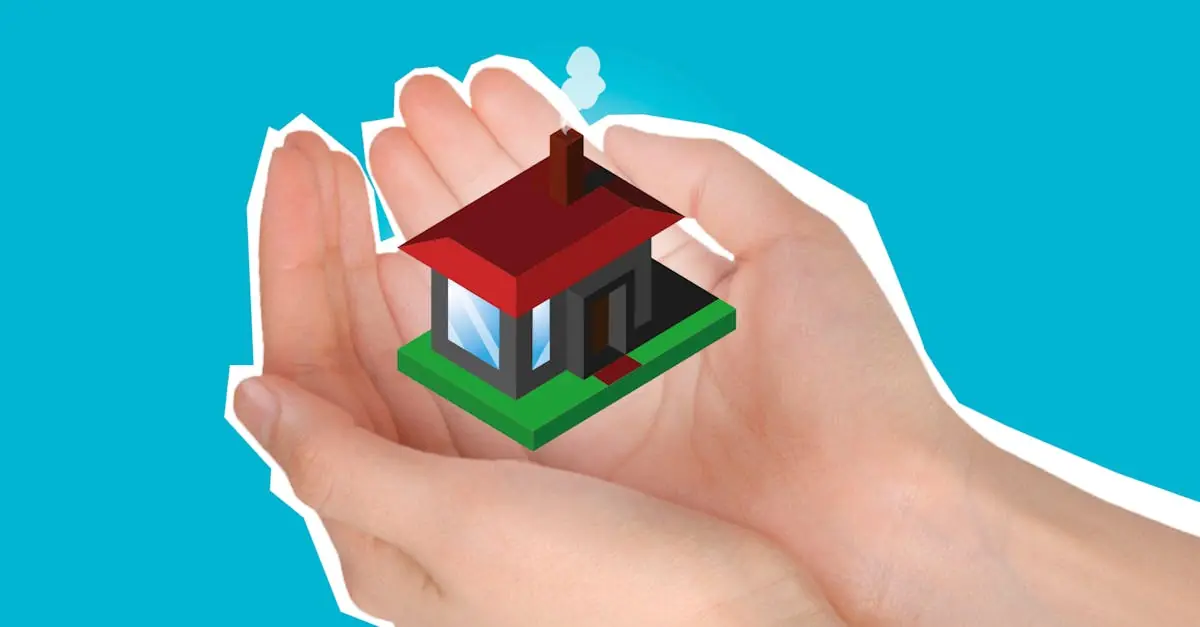Table of Contents
ToggleNavigating the world of home loans can feel like trying to solve a Rubik’s Cube blindfolded. For veterans and active-duty service members, the VA loan program offers a unique opportunity, but many overlook the ins and outs of VA loan mortgage insurance. Spoiler alert: it’s not as scary as it sounds!
Overview Of VA Loan Mortgage Insurance
VA loan mortgage insurance, commonly known as the VA funding fee, plays a critical role in the VA loan program. This fee, unlike traditional mortgage insurance, provides a guarantee to lenders, reducing their risk. Borrowers do not pay monthly premiums, making it financially advantageous for veterans and service members.
Typically, veterans and active-duty personnel pay a one-time fee upfront at closing. The exact fee varies based on several factors, including service type and down payment size. For instance, veterans with a zero down payment face a funding fee of 2.3%. This fee decreases when a borrower makes a down payment of 5% or more.
Exemptions exist for certain individuals. Recipients of the Purple Heart and individuals who have a service-connected disability do not incur this fee. These exemptions significantly lower costs for eligible veterans, enhancing benefits provided through the VA loan program.
Payment options are flexible. Borrowers can finance the funding fee into their mortgage, spreading it out over the loan term. This option alleviates the immediate financial burden and simplifies budgeting.
Understanding the dynamics of VA loan mortgage insurance empowers veterans to make informed decisions. Staying aware of funding fee rates and exemptions can save borrowers money and improve home affordability. Familiarity with these details fosters confidence in utilizing the VA loan benefit effectively.
Benefits Of VA Loan Mortgage Insurance
VA loan mortgage insurance offers several advantages for eligible borrowers. Understanding these benefits helps veterans and service members make informed financial decisions.
No Monthly Premiums
One significant advantage involves the absence of monthly premiums. Traditional mortgage insurance often requires a monthly payment that adds to homeownership costs. With VA loans, the funding fee acts as a one-time upfront cost, eliminating ongoing premium expenses. Borrowers save money each month without compromising lender security. They can allocate funds to other important expenditures, such as maintenance and improvement of their homes.
Lower Upfront Costs
Lower upfront costs serve as another compelling benefit. The VA funding fee remains comparatively lower than most private mortgage insurances. Veterans with zero down payments typically face a 2.3% fee, which decreases with larger down payments. Some service members may qualify for exceptions, including those with service-connected disabilities and Purple Heart recipients. These exemptions significantly reduce the upfront financial burden, enabling more veterans to access home loans without extensive savings.
Eligibility Requirements
Eligibility for VA loan mortgage insurance focuses on specific groups, primarily service members, veterans, and certain surviving spouses. Understanding these criteria can streamline the application process.
Service Members And Veterans
Active-duty personnel and veterans qualify for the VA loan program based on their length of service and discharge status. Generally, a minimum of 90 days of active-duty service during wartime or 181 days during peacetime enables access. Those with six years of service in the National Guard or Reserves also meet eligibility requirements. Discharge status plays a crucial role. Honorable and general discharges typically qualify. Additionally, veterans seeking financial ease can benefit from exemptions on the VA funding fee, particularly if they received a Purple Heart or have service-connected disabilities. Veterans should review these elements as they navigate their loan options.
Surviving Spouses
Surviving spouses of service members who died in the line of duty or from service-related conditions may also qualify for VA loans. Eligibility applies if the spouse remains unmarried and has not remarried. The VA program permits these individuals to access loan benefits without the traditional funding fee in certain instances. Surviving spouses should gather necessary documentation, including the service member’s DD Form 214 and a Certificate of Eligibility, to facilitate the application process. Access to these loans ensures continued support for families, promoting home ownership during difficult times.
How VA Loan Mortgage Insurance Works
Understanding how VA loan mortgage insurance operates is essential for veterans and service members. The VA funding fee, a key element of the VA loan program, provides financial security for lenders without requiring monthly premiums.
Funding Fee Explained
This one-time funding fee varies based on several factors, including service type and down payment amount. For instance, veterans making no down payment typically encounter a fee of 2.3%. With higher down payments, this percentage decreases, which can significantly lower overall costs. Certain service members, such as those with service-connected disabilities or Purple Heart recipients, enjoy exemptions from this fee. Financing the fee into the mortgage remains an option, relieving immediate financial pressures.
Loan Limits And Terms
VA loans come equipped with specific loan limits and favorable terms. Generally, these loans do not require private mortgage insurance. Loan limits may vary by county and are often influenced by local housing markets. Most veterans can borrow up to $453,100 without a down payment, whereas limits in high-cost areas can exceed $1 million. The terms for VA loans usually include competitive interest rates and longer repayment periods, promoting ease of home ownership. With such favorable loan conditions, veterans can confidently navigate the home buying process.
Common Misconceptions
Many misunderstandings surround VA loan mortgage insurance. Clarifying these misconceptions can help veteran borrowers make informed choices.
VA Loan vs. Traditional Loan
VA loans differ significantly from traditional loans. Traditional loans typically require private mortgage insurance, adding recurring monthly costs. In contrast, the VA funding fee serves as a one-time charge, alleviating ongoing expenses. Veterans who secure a VA loan enjoy no monthly premiums, resulting in lower overall costs. Eligibility for VA loans is broader, allowing service members to access better terms based on their unique circumstances. Competitive interest rates further enhance affordability, making the VA option more appealing compared to conventional mortgage products.
Coverage Limitations
Understanding the coverage limitations of VA loan mortgage insurance is essential. The VA funding fee does not provide direct protection for borrowers against default. Instead, this fee safeguards lenders, ensuring they remain protected from potential losses. While exemptions exist for certain individuals, many veterans face varying fees based on service history and down payment size. Knowing these limits can help veterans anticipate potential costs when planning their home purchases. Other loan benefits may not apply if veterans sell their homes or refinance, emphasizing the importance of thorough understanding before committing to a loan.
Conclusion
Navigating VA loan mortgage insurance can seem daunting but understanding its benefits is key for veterans and active-duty service members. The VA funding fee offers a unique advantage by eliminating monthly premiums and reducing overall costs. This one-time fee not only protects lenders but also makes home ownership more accessible for those who have served. With exemptions available for certain individuals and the option to finance the fee, veterans can secure their dream homes with greater ease. By being informed about these aspects, they can make confident decisions that enhance their financial well-being while utilizing their VA loan benefits effectively.







